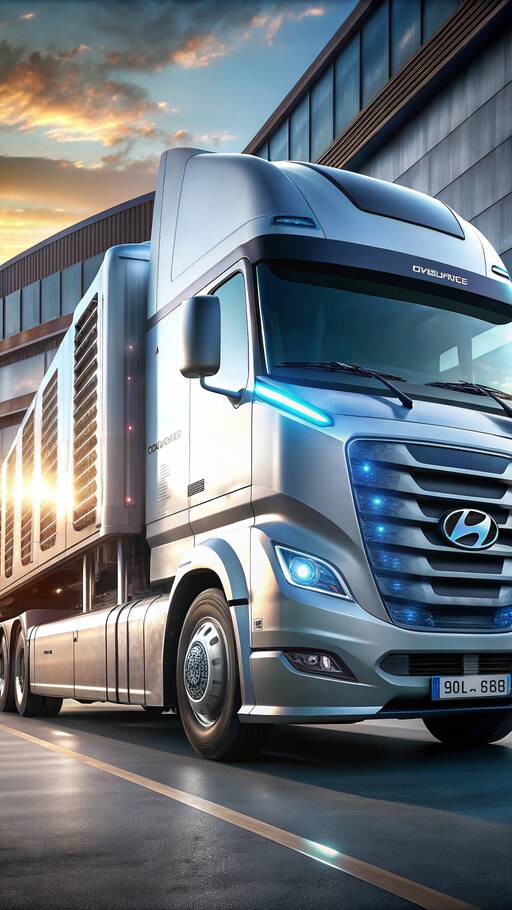
This fully operational fleet aims to boost delivery efficiency in partnership with logistics specialist Glovis America. These trucks will have dedicated hydrogen fueling infrastructure, essential for supporting the assembly plant.
As hydrogen gains momentum, automakers foresee a future where battery-electric and hydrogen models coexist, especially in the heavy-duty trucking sector. Hyundai steadfastly supports hydrogen fuel-cell technology, continuing its development alongside its extensive BEV lineup.
This month saw the debut of Hyundai’s 21 Class 8 XCIENT hydrogen-powered trucks. These zero-emission vehicles will transport parts daily from suppliers to the plant, providing a sustainable option in logistics.
Oscar Kwon, HMGMA’s CEO, emphasized the environmental benefits of these zero-emission trucks. The initiative aligns with Hyundai’s HTWO brand, striving to build a robust hydrogen ecosystem, from production to vehicle operation.
Despite the optimism, hydrogen projects face infrastructure challenges. Hyundai is addressing this with a bespoke hydrogen station at the Georgia site, highlighting HTWO's commitment to a complete fuel-cell ecosystem. This controlled test environment, however, contrasts with the logistical ease of BEV infrastructure.
While Southern California shows slow infrastructure growth, Europe is making progress with hydrogen and EV corridors. Hyundai’s initiative could potentially spark interest among US logistics companies if successful at HMGMA.
Summary:
Hyundai is leading the trucking industry toward a hydrogen-powered future with its pioneering deployment of 21 hydrogen fuel-cell trucks in Georgia. In partnership with Glovis America, Hyundai is demonstrating the practical applications and potential of hydrogen in logistics, while addressing infrastructure challenges within a controlled environment. This initiative highlights Hyundai's dual commitment to hydrogen and BEV technologies as it works to expand the hydrogen ecosystem.